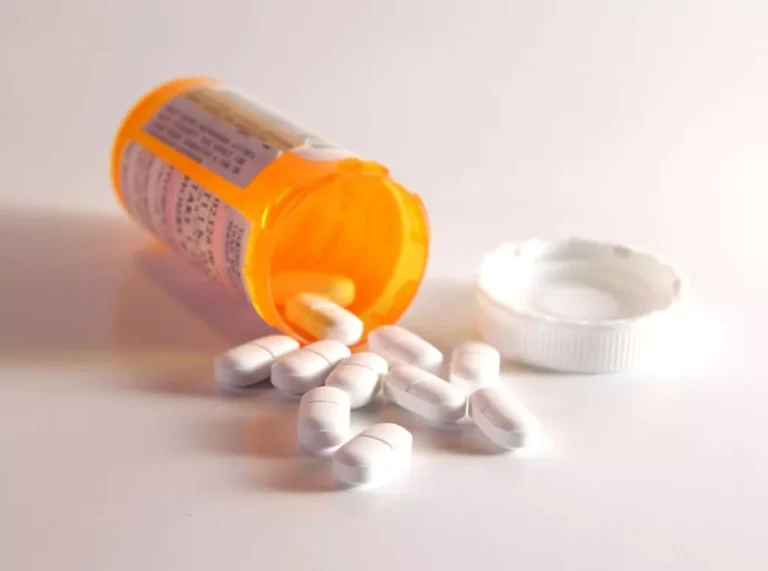
One study found that people who got less than 7 hours of sleep were nearly three times more likely to develop a cold compared with those who got 8 or more hours of sleep. Drinking also makes it harder for your body to properly tend to its other critical functions, like fighting off a disease. When the body is unable to clear a pathogen, an infection can worsen and lead to more severe, life threatening complications. Alcohol has been flying off the shelves as people try to combat boredom during lockdown, with some reports estimating that alcoholic beverage sales surged by 55 percent toward the end of March. Long-term alcohol use can change your brain’s wiring in much more significant ways. Cirrhosis, on the other hand, is irreversible and can lead to liver failure and liver cancer, even if you abstain from alcohol.
Immune System Recovery After Drinking

SCFAs also promote the activation of B cells and the development of Treg CD4+T cells—for example, increasing secretion of IL-10 with important anti-inflammatory effects. Suppression of inflammatory factors like cytokines is further achieved by the inhibition of histone deacetylases (HDACs) activity. Finally, SCFAs have been shown to modulate immune inflammation responses in extraintestinal organs such as the brain, by acting on microglia and astrocytes. These disruptions to the composition of the gut microbiota and to gut barrier function have important implications beyond the intestinal system. For example, Nagy discusses how the leakage of bacterial products from the gut activate the innate immune system in the liver, triggering inflammation that underlies ALD, a condition that affects more than 2 million Americans and which eventually may lead to liver cirrhosis and liver cancer. Infection with viral hepatitis accelerates the progression of ALD, and end-stage liver disease from viral hepatitis, together with ALD, is the main reason for liver transplantations in the United States.

Hepatitis B and Hepatitis C
When you’re hanging out by the pool or the beach, this may give you the opportunity to finally slow down and unwind from stress. Your body may recognize that it’s behind on sleep and can finally recover and relax, which can make you feel sleepy, Mularoni said. This causes mutations in the DNA and must be corrected for the cells not to die, Rogers explained.
Your body is trying to repair UV damage.
- This part of the immune response is specific to one particular pathogen and also creates an “immune memory” that allows the body to respond even faster and more effectively if a second infection with the same pathogen occurs.
- In contrast, men who consumed a similarly moderate amount of beer for the same period exhibited a significant increase in basophils alone.
- Similarly, plasma adiponectin concentration was increased after 28 days of daily consumption of 450mL of red wine compared with dealcoholized red wine amongst 34 men, in the absence of changes in subcutaneous and abdominal fat contents as well as body weight (Beulens, van Beers et al. 2006).
- The rest of the SCFAs reach the circulatory system via the superior or inferior mesenteric vein, reaching the brain and crossing the blood–brain barrier thanks to monocarboxylate transporters thus being able to act as signaling molecules between the gut and the brain [74].
- Acute high dose exposures inhibit whereas long-term treatments stimulate proinflammatory cytokine production.
In fact, with the emergence of COVID-19 (along with other recent respiratory illnesses), the term “compromised immune system” has become all too common over the past few years. Drink responsibly— Using alcohol to cope with negative Covid-19 related feelings could place a person on a path toward developing an alcohol use disorder, Koob cautions. Still, can alcohol weaken your immune system the evidence is more robust for considering how much you’re drinking, rather than what you’re drinking. Experts suggest sticking to serving sizes and reflecting why you want that drink in the first place. It causes pus to accumulate in the respiratory system’s pleural cavity, the space between the chest cavity’s inner wall surface and the lungs.
Long-term effects of alcohol
- This is likely related to polyphenols in red wine and may explain why beer and spirits (hard alcohol) haven’t been linked to the same health benefits.
- Ethanol modulates the function of monocytes, immature innate immune cells that circulate in the blood until recruited into tissues, in a dose and time dependent manner.
- The activity of this protein is regulated by another molecule, inhibitor of NF- B (I B).
- The observed decrease in expression of NFκB is in line with earlier studies examining decreased pro-inflammatory cytokine production with moderate alcohol consumption.
- It is mainly composed of macrophages, dendritic and natural killer cells, as well as different forms of granulocytes.
Several lines of evidence suggest that alcohol consumption exerts a dose-dependent impact on the host response to infection. Chronic alcohol abuse leads to increased susceptibility to bacterial and viral infections, most notably a 3 to 7-fold increase in susceptibility (Schmidt and De Lint 1972) and severity (Saitz, Ghali et al. 1997) of bacterial pneumonia compared with control subjects. Similarly, the incidence of Mycobacterium tuberculosis infection among alcoholics is increased (Sabot and Vendrame 1969, Hudolin 1975, Kline, Hedemark et al. 1995, Panic and Panic 2001). Alcohol use has also been shown to drive disease progression in chronic viral infections such as human immunodeficiency virus (HIV) (Baum, Rafie et al. 2010) and Hepatitis C (Bhattacharya and Shuhart 2003).


Can You Drink When You’re Sick?
How Alcohol Affects the Immune System


